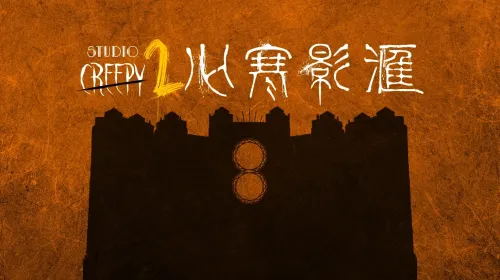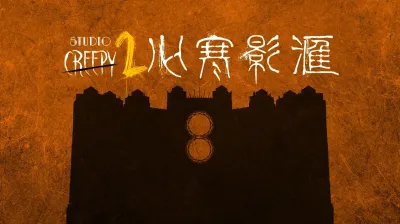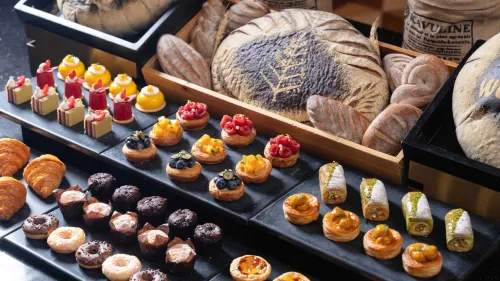Outcasts the Podcast Introduces Canto Humour, Macau Identity to the World

Can you find two women who fit the classic third-culture kid stereotype better than Iasmin Lumibao and Fathima Mohamed?
Both born and raised in Macau with matriarchal Filipino roots, Iasmin and Fathima, who have Brazilian and Sri Lankan roots respectively, speak Cantonese, Mandarin, Portuguese, Tagalog, and English—all with an American accent.
The cultural identities of the best friend duo confused nearly everyone outside of Macau, inspiring the pair to educate the world about how multicultural Macau is, what Cantonese culture means, and how to explain Hong Kong and Macau history to a five-year-old with their online chat show, Outcasts the Podcast.
“It’s a village with a city feel,” explains Iasmin of Macau’s vibe on a Zoom call based in New Jersey. “Our parents came as foreign skilled workers,” Fathima says from Florida, “many Filipinos would look for work outside the country and towards Macau for opportunity.”
“We went to local Chinese schools, just two foreigners trying to fit in. We had to be translators for our parents, being forced to learn Cantonese and Portuguese to get them around,” Fathima says.
“I felt that I was more of a foreigner when I left Macau, and people would ask us, where's that (Macau), near Hong Kong? That’s when I felt more Macanese.”
Life in Macau—a city that’s just 50% bigger than Hong Kong Island and home to about 690,000 people— is intimate and close-knit. With Cantonese culture in Macau uniquely similar to Hong Kong and neighbouring Guangdong province, the city shares a connection with its Chinese cousins in identity, language, and nationality.
After studying in Macau during their teenage years, both Macanese women fell in love with American men and travelled west to the States. “We did our own thing and only realised we both lived in America after a long while. We visited each other, and only after a year living in America did we begin the podcast,” says Fathima.
Creating the podcast was natural, Fathima says. With Subtle Cantonese Traits Facebook group catalysing the accessibility of online discourse about Cantonese identity, it is hard not to find Instagram Reels, TikToks, or Facebook videos of Hong Kongers abroad or at home mock and joke about the idiosyncratic Cantonese ways of living and breathing.
“I began the podcast on YouTube and began ranting in a video about weird Cantonese traditions. Iasmin offered herself to guest present with me, and I said yes!”
“We initially only wanted to explore conversations about how we felt like a foreigner here in America and the different culture shocks we had. However, thinking about our Macanese identity, we wanted to create this safe space where third-culture kids can bond and relate.”
On YouTube and through their Instagram, both Fathima and Iasmin chat nostalgia with Hong Kong and Macanese childhood snacks, clever swear words in Cantonese, what’s it like explaining Cantonese identity to a layman, life as third-culture kids, and culture shock as Macanese in the big world.
The pair commented that they found a good reaction from a Cantonese diaspora of second-generation Hong Kongers, largely living in the West, with identity issues of their own.
“We didn't think we would have such a big Cantonese following. We didn't think this language, that we can't even speak it with our family, could find us people that would relate to us. The internet surprised us,” says Fathima.
“Equally, our podcast is a space for Cantonese diaspora kids to learn Cantonese and connect with Macau and Hong Kong away from home,” Iasmin follows up.
As the podcast name details, they are “outcasts wherever we go.”
When asked why anyone should travel to Macau, “food and less walking” than Hong Kong is the answer Fathima shouts out on our Zoom call. “Hong Kong has a lot of food and great things to see, but there’s too much walking. Call me lazy because I am from Macau, even going to Lan Kwai Fong is an uphill battle!”
Iasmin says, “You'll never get lost in Macau. If you come for one or two days, you can see everything and absorb all the food and culture, because there are so many cuisines in one place.”
Beyond visiting Macau, which Iasmin recently did after three years away from home, both podcast hosts want to make the podcast a full-time job. “It’s a place where we want to relate to people that feel out of place all the time, because that's literally how we feel. Our identity crisis is no joke.”
Get the latest curated content with The Beat Asia's newsletters. Sign up now for a weekly dose of the best stories, events, and deals delivered straight to your inbox. Don't miss out! Click here to subscribe.


































